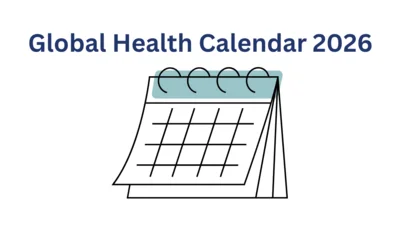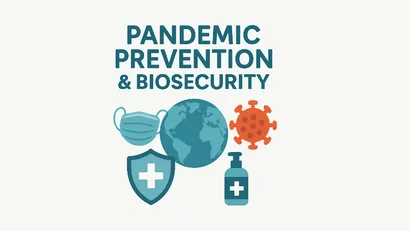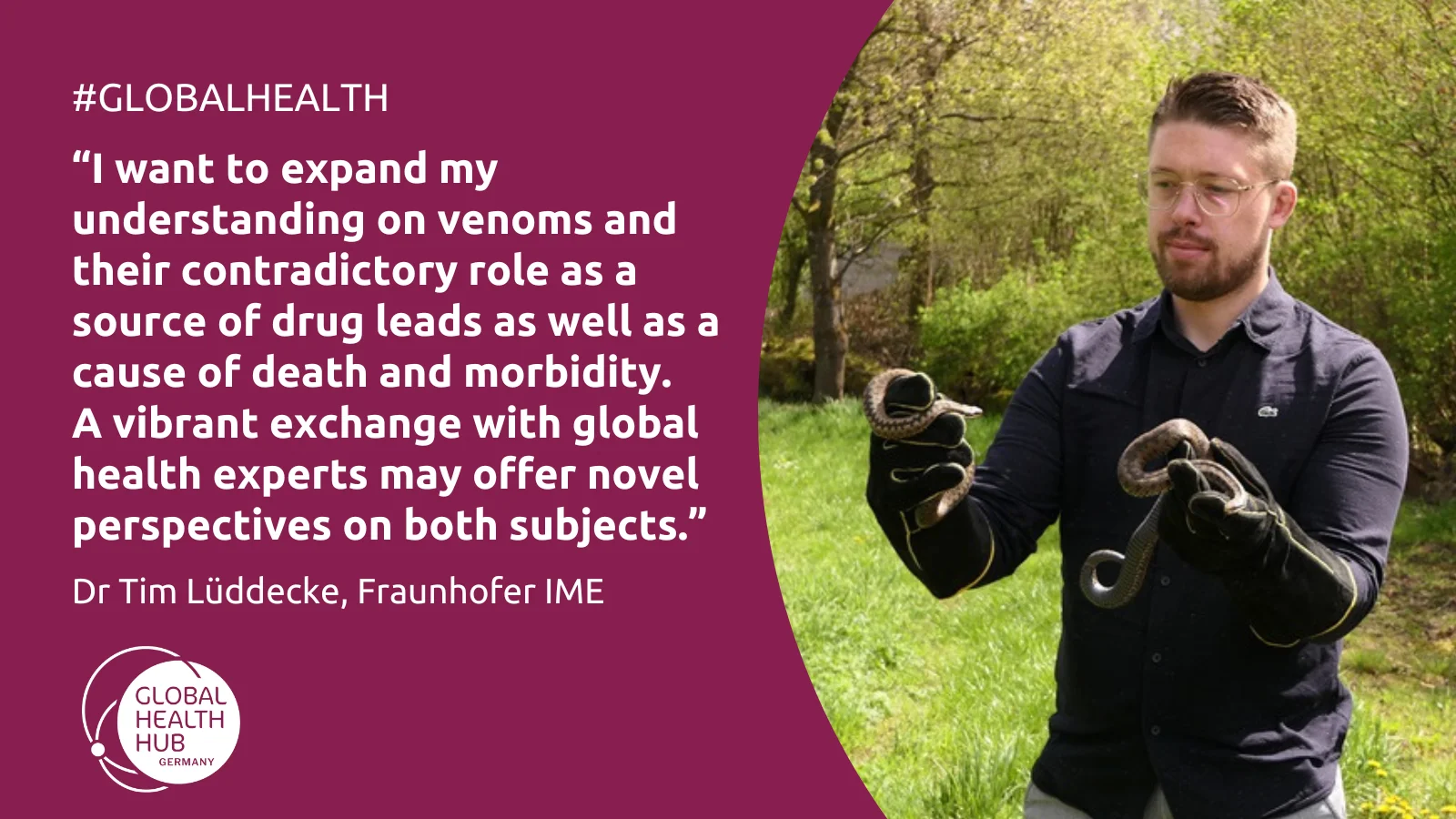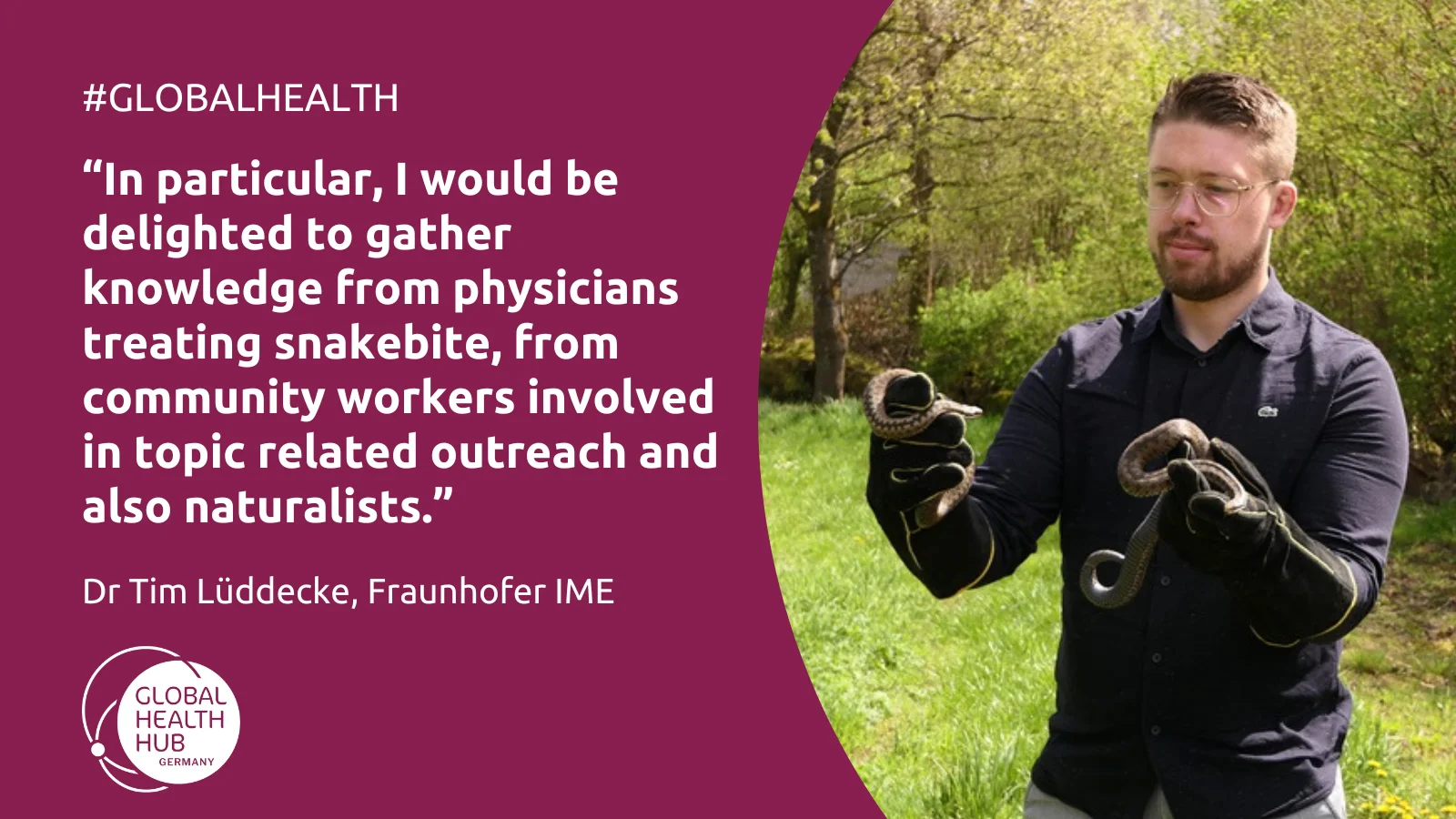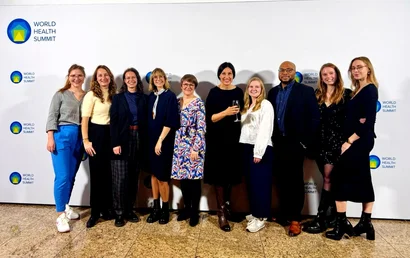5 Questions to our 2000th Hub member: Dr Tim Lüddecke
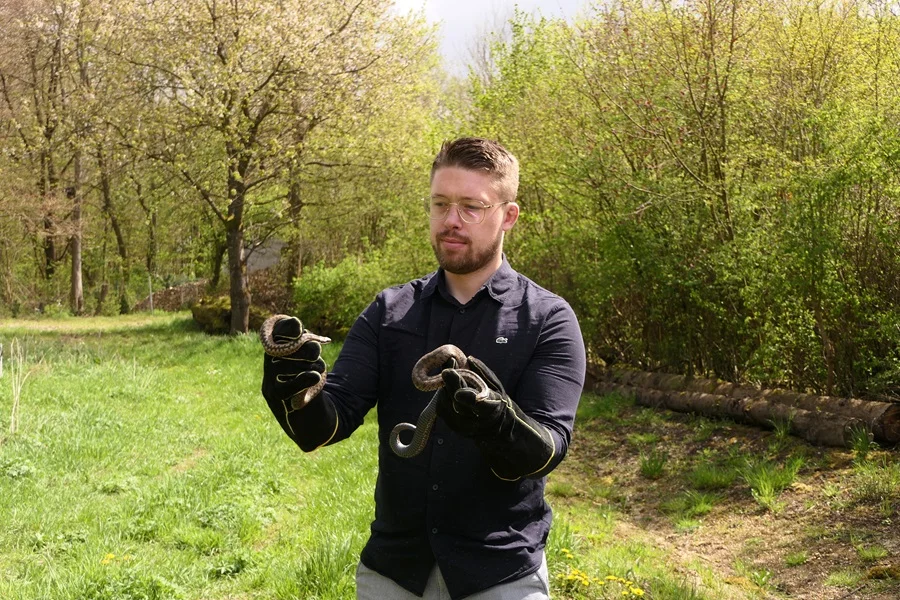
Meet Dr Tim Lüddecke. Studying snakes and scorpions is part of his comfort zone. Learn more about his expertise in animal venoms, his interest in global health and his motivation to join the Hub Community on Snakebite Envenoming.
Congratulations on breaking a record as our 2000th Hub member. Can you please share a little about your background and your current role in the field of global health?
Tim Lüddecke: Thank you. My background is in zoology as well as in biochemistry, specifically animal venoms. I am a lecturer for Insect Biotechnology at the Justus Liebig University Giessen and a project area speaker for Natural Product Genomic of the LOEWE Centre for Translational Biodiversity Genomics in Frankfurt am Main. On top, I currently hold a group leader position at the Fraunhofer Institute for Molecular Biology and Applied Ecology in Giessen. The group is a wild mix of very enthusiastic and bright young minds that look into animal venoms across the entire tree of life. Our focus is on translational research, looking into venom and venom toxins as a source of biomedical innovation, particularly in the area of antiinfectives. Thereby, we mostly examine arthropod venoms, especially spiders. However, in the background we look also into other venomous animals, including worms, insects and (poisonous) amphibians. Since very recently, we are also interested in the topic of snakebite envenoming. Here, we want to understand why snake venom profiles differ intraspecifically in order to optimise treatment for victims of snakebite envenoming.
How did you first learn about the Hub and its mission?
Tim Lüddecke: In late September 2023, I was invited to give a lecture on snakebite in Hamburg, Germany. This is when I first heard of the Hub and its involvement on snakebite issues. Shortly after the event, colleagues encouraged me to contribute to the Hub Community on Snakebite Envenoming.
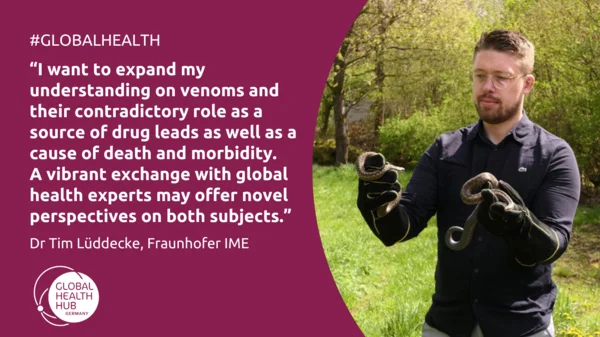
Why did you become a Hub member?
Tim Lüddecke: To me it felt like an exciting opportunity reaching out to colleagues and, at the same time, broadening my perspectives in the context of global health issues. Specifically, I want to expand my understanding on venoms and its contradictory role as a source of drug leads as well as a cause of death and morbidity. A vibrant exchange with global health experts may offer novel perspectives on both subjects.
What do you hope to achieve or contribute as a Hub member to our Community?
Tim Lüddecke: First, I hope to develop a better and most importantly broader understanding of snakebite envenoming specifically and animal toxinology in general. By the time of this interview, my personal experience and expertise is centered around three areas: ecological function of venom toxins, biotechnological production and analytical chemistry that is needed to study them, and to exploit them translationally. While feeding this trinity of key skills into the Hub Community and thereby expanding the current toolbox of global health assets, I hope to develop a more holistic perspective on those subjects beyond the lab scale. In particular, I would be delighted to gather knowledge from physicians treating snakebite, from community workers involved in topic-related outreach and also naturalists.
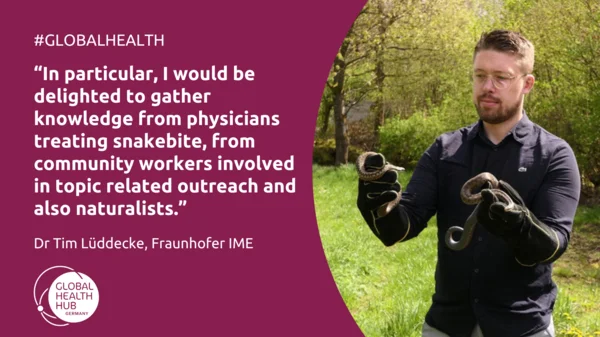
What are key opportunities you see in bringing together stakeholders from various sectors in global health?
Tim Lüddecke: In my opinion, collaborative platforms with stakeholders across disciplines are of great importance. First of all, they can serve as a basis for future collaborations and research networks. This is very enriching because then distinct labs from different backgrounds can jointly tackle important research questions. These diverse perspectives allow a much more integrative approach to a given problem, in global health and beyond. Moreover, such platforms may deliver the means to initiate mobility between groups, enabling science-informed capacity building. In the end, I deeply believe that large questions or problems require concerted efforts to advance our understanding and eventually develop solutions. Therefore, I look forward to be involved in the Hub and expect great deeds from it in the future.
The interview was conducted and edited by Julia Schmitt.
Image source of the top picture: Paul Hien
Do you want to contribute with your expertise in global health? Get involved in the Hub:
Verwandte Artikel
